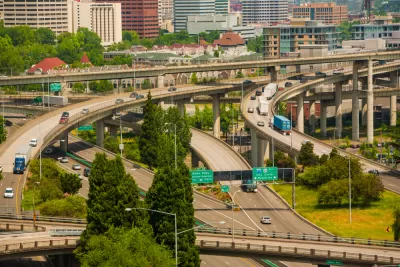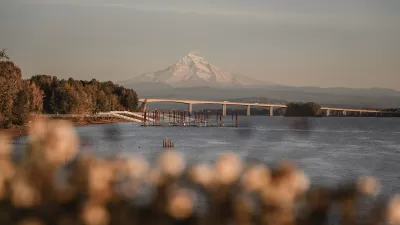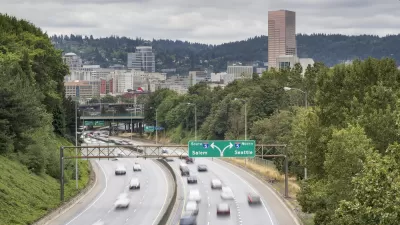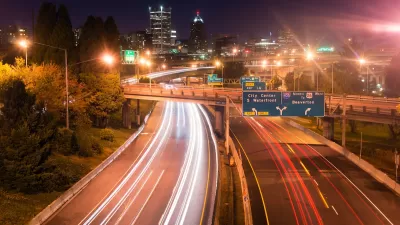The state’s plan to implement tolls to reduce congestion and promote alternate transportation modes is facing some backlash as critics argue the revenue shouldn’t fund road expansion projects.

Oregon’s plans to introduce tolls on many of the state’s freeways has drawn concern even from supporters of toll roads, who say that the potential costs could negatively impact low-income residents. While tolling can be a useful traffic management and emissions reduction tool, critics say the state’s department of transportation (ODOT) shouldn’t use toll revenue to fund road expansion projects, writes Jayati Ramakrishnan in Oregon Live.
While the actual costs of tolling are yet to be determined, economist Joe Cortright made his own calculation, which ODOT disputes. “Piecing together public records and disparate numbers ODOT has released over the last few years, Cortright concluded that tolls on either an I-5 or I-205 route could pile up to as much as $30 for a hypothetical round-trip commute between Wilsonville and Vancouver during peak hours — when tolling rates would be at their highest to discourage congestion.” However, the article also points out that low-income drivers are more likely to drive outside of peak commute hours.
ODOT officials argue that proposed road and bridge projects are necessary to maintain the safety of the state’s transportation infrastructure. The agency also plans to offer reduced prices for low-income drivers. To address the inherent inequity in supporting road expansion projects, two proposed state bills would require a percentage of toll revenue to go to public transit projects and task ODOT with developing a clear low-income tolling plan.
FULL STORY: Tolls are coming to Portland-area freeways, and even tolling fans worry they’ll stack up

Alabama: Trump Terminates Settlements for Black Communities Harmed By Raw Sewage
Trump deemed the landmark civil rights agreement “illegal DEI and environmental justice policy.”

Study: Maui’s Plan to Convert Vacation Rentals to Long-Term Housing Could Cause Nearly $1 Billion Economic Loss
The plan would reduce visitor accommodation by 25% resulting in 1,900 jobs lost.

Planetizen Federal Action Tracker
A weekly monitor of how Trump’s orders and actions are impacting planners and planning in America.

Federal Homelessness Agency Places Entire Staff on Leave
The U.S. Interagency Council on Homelessness is the only federal agency dedicated to preventing and ending homelessness.

Restoring Northern India’s Himalayan ‘Water Temples’
Thousands of centuries-old buildings protect the region’s natural springs and serve as community wells and gathering places.

Milwaukee to Double Bike Share Stations
Bublr Bikes, one of the nation’s most successful, will add 500 new e-bikes to its system.
Urban Design for Planners 1: Software Tools
This six-course series explores essential urban design concepts using open source software and equips planners with the tools they need to participate fully in the urban design process.
Planning for Universal Design
Learn the tools for implementing Universal Design in planning regulations.
Caltrans
Smith Gee Studio
Institute for Housing and Urban Development Studies (IHS)
City of Grandview
Harvard GSD Executive Education
Toledo-Lucas County Plan Commissions
Salt Lake City
NYU Wagner Graduate School of Public Service





























